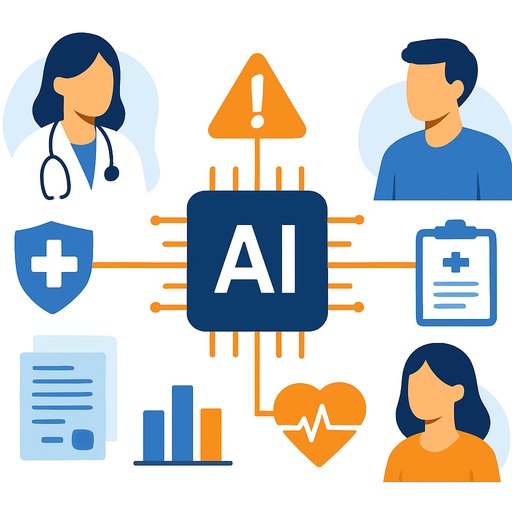AI Clinical Decision Support in Oncology: Practical Takeaways
Oncologists face relentless information load and administrative work. Hours go into keeping up with new evidence and verifying complex orders.
AI-enabled clinical decision support (CDS) should act as a copilot-not a replacement. The goal: reduce cognitive strain, catch errors before they happen, and surface real-time suggestions aligned to the patient in front of you.
What a useful CDS Copilot Does
- Reduces cognitive load by consolidating labs, imaging, genomics, meds, allergies, comorbidities, and performance status into one view.
- Checks safety on complex treatment orders: dose ranges, drug-drug interactions, contraindications, and organ function limits.
- Delivers real-time options: evidence-aligned regimens, dosing adjustments, supportive care prompts, and clinical trial reminders.
Make It Work in the EMR
CDS earns trust when it sits inside the existing workflow. Tools like MiBA TIPS show how point-of-care education and guidance can appear at order entry or note review with patient-specific context.
In community oncology, this consolidation reduces clicks, shortens chart review, and supports more precise decisions without slowing visits.
How to Evaluate and Implement
- Start with high-impact use cases: regimen selection, dosing, growth factor strategy, antiemetics, and prophylaxis.
- Define data inputs and refresh cadence: structured fields, key parts of notes (via NLP if available), and near real-time updates.
- Set governance: content owners, review cycle, and alignment with institutional policies and leading guidelines.
- Measure outcomes: time saved per visit, alert acceptance rate, intercepted errors, order corrections, and user satisfaction.
Guardrails for Trust
- Clinician remains the final decision-maker; recommendations are optional, not prescriptive.
- Transparent rationale: show why a suggestion surfaced and which patient data points triggered it.
- Equity checks: monitor performance across demographics and rare histologies.
- Privacy and security by default; full audit logs of inputs and outputs.
What "Good" Looks Like
- Fast: responses in under two seconds inside the EMR.
- Relevant: fewer, higher-value alerts with one-click actions.
- Current: synced with peer-reviewed evidence and local protocols.
- Proven: clear ROI in minutes saved and error reduction.
CDS should help you think clearly under pressure. When it filters noise, checks risk, and brings the right evidence into the moment, care improves-and so does your day.
Helpful resources: ONC overview of Clinical Decision Support. For community oncology models and research, see NCI NCORP.
If your team needs practical upskilling on AI skills by role, explore AI courses by job.
Your membership also unlocks:






